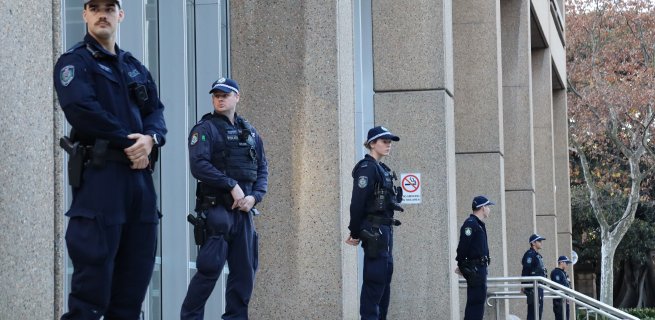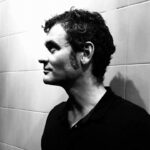Cancel culture is the practice of boycotting a well-known personality or company for espousing objectionable or offensive views.
NSW One Nation leader Mark Latham has a special aversion to this emerging trend, which he perceives as a threat to freedom of speech.
“This is anti-intellectualism at its core,” Latham told the Bolt Report mid-last year. “What it is basically saying is you’ve got no chance to learn from other people.”
But, somewhat ironically, a parliamentary committee is currently considering a Latham-drafted bill, which, if successful, would mean teachers, counsellors and any other staff working at NSW schools would be sacked for broaching the subject of gender fluidity, even if a student raises the topic.
With such laws being so publicly out of step in 2021, it might be thought Berejiklian MPs wouldn’t consider them. However, they’ve already resolved to inquire into their own laws based on Latham’s proposal to reintroduce uranium mining and extend the right to discriminate to those of faith.
Indeed, these days, NSW Liberal Nationals MPs are so emboldened as to consider unpopular One Nation-inspired laws, as since the O’Farrell/Baird/Berejiklian government took office in March 2011, it’s been busy enacting a suite of rights-eroding measures that have sought to silence dissent.
Restricting protest
As the NSW Nationals push for uranium, and Berejiklian moves full steam ahead on gas, they can all rest assured that opposition from those pesky environmentalists will be contained, thanks to former state premier Mike Baird’s March 2016 interference laws.
The new laws broadened the definition of a mine, so that the offence of interfering with one, under section 201 of the Crimes Act 1900 (NSW), now applies to coal seam gas sites as well. This crime carries a penalty of seven years imprisonment.
But the real clincher to Baird’s changes was the insertion of section 4B into the Inclosed Lands Protection Act 1901 (NSW). This created the new offence of aggravated unlawful entry into inclosed lands and upped the penalty tenfold: from $550 for unlawful entry to $5,500 for aggravated entry.
The definition of inclosed lands is fairly broad to say the least. It includes public or private land enclosed by a fence, wall, canal or natural feature – if not wholly enclosed, at least in part. This can include enclosure by a building or land occupied by or used in connection with a building.
Berejiklian has subsequently overseen two further changes to draconian section 4B. The first was a November 2017 change that outlawed introducing a biosecurity risk onto inclosed lands. This is under the provisions of the Biosecurity Act 2015 (NSW), which can include filming equipment.
The second amendment came under the anti-animal rights Right to Farm Act 2019 (NSW), which extended the aggravated trespass law to agricultural land. This farming-related offence specifically carries up to 1 year prison time, or 3 years if in company or for further aggravated circumstances.
Restrictions on movement
Not only has the Coalition been attempting to silence the voices of citizens, but it has also enacted laws that make it easier to restrict their movements and practices, via a number of rights-corroding laws that purportedly target criminals and terrorists.
The O’Farrell government enacted new consorting laws in 2012, under section 93X of the Crimes Act. The law makes it an offence for someone over the age of 14 to continue associating or communicating with at least two convicted criminals after police warn them against doing so.
A consorting order can be placed on an individual who doesn’t have a criminal record, and if they breach it, they can be locked up for 3 years.
Claimed to be about curbing biker activities, the anti-consorting law has been generously applied to the young, the homeless and especially First Nations people.
Premier Baird was having a rights erasing bonanza in the first half of 2016, as his government also passed two further pieces of legislation that provide NSW authorities with some fairly extreme powers to place restrictions on an individual’s movements, even if they’ve never been convicted.
The Serious Crime Prevention Orders Act 2016 (NSW) allows the DPP or the NSW Crime Commission to place a 5-year-long court-approved order restricting employment, movement or association on an individual who has merely been charged with a serious offence, even if later acquitted or dropped.
While the Organised Crime and Public Safety Act, permits senior police to place public safety orders upon citizens, which bans them from attending a place or event for up to 72 hours. And as it is a preventative measure, no proof of the commission of any crime is needed.
The necessary enforcers
The NSW Police Force is one of the largest law enforcement bodies in the English-speaking world. And over the last decade, the Liberal Nationals government has moved to ensure it stays that way, as it has upped its numbers by an additional 2,500 officers.
During this same time, the use of drug dogs has escalated. This has included an increasing presence out the front of music festivals and events, despite the fact that their use has been shown to be highly flawed and cause young people to participate in dangerous drug-taking behaviours.
And over the second half of the current Coalition’s reign, strip searches have become an everyday factor of civilian life. The four years to June 2018 saw strip search use increase by 47 percent, while, in 2019, screens were rolled out at Central Station to permit the disrobing of commuters.
An unholy alliance
So, it’s against this backdrop that Mark Latham took a seat in the NSW Legislative Council in March 2019, where he now seems to be able to predict the type of legislation that the Berejiklian government will likely endorse and then later mimic with their own set of laws.
And somewhat conveniently for the state government, it no longer has to be seen to be introducing divisive bills that target LGBTIQ communities, embolden Christian Right bigots, or reinstate the mining of radioactive materials, as it has someone else in parliament taking the flak for them.











